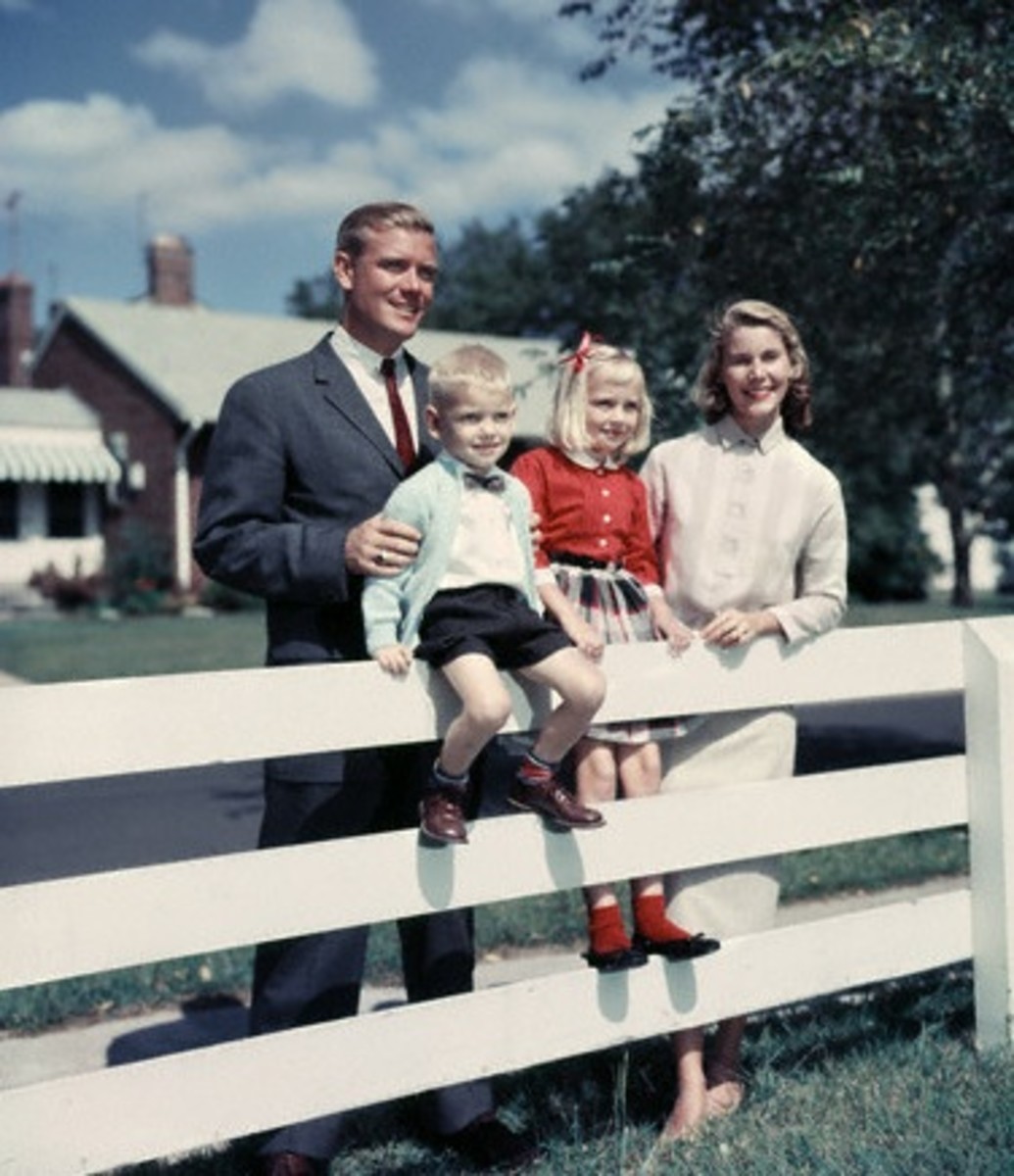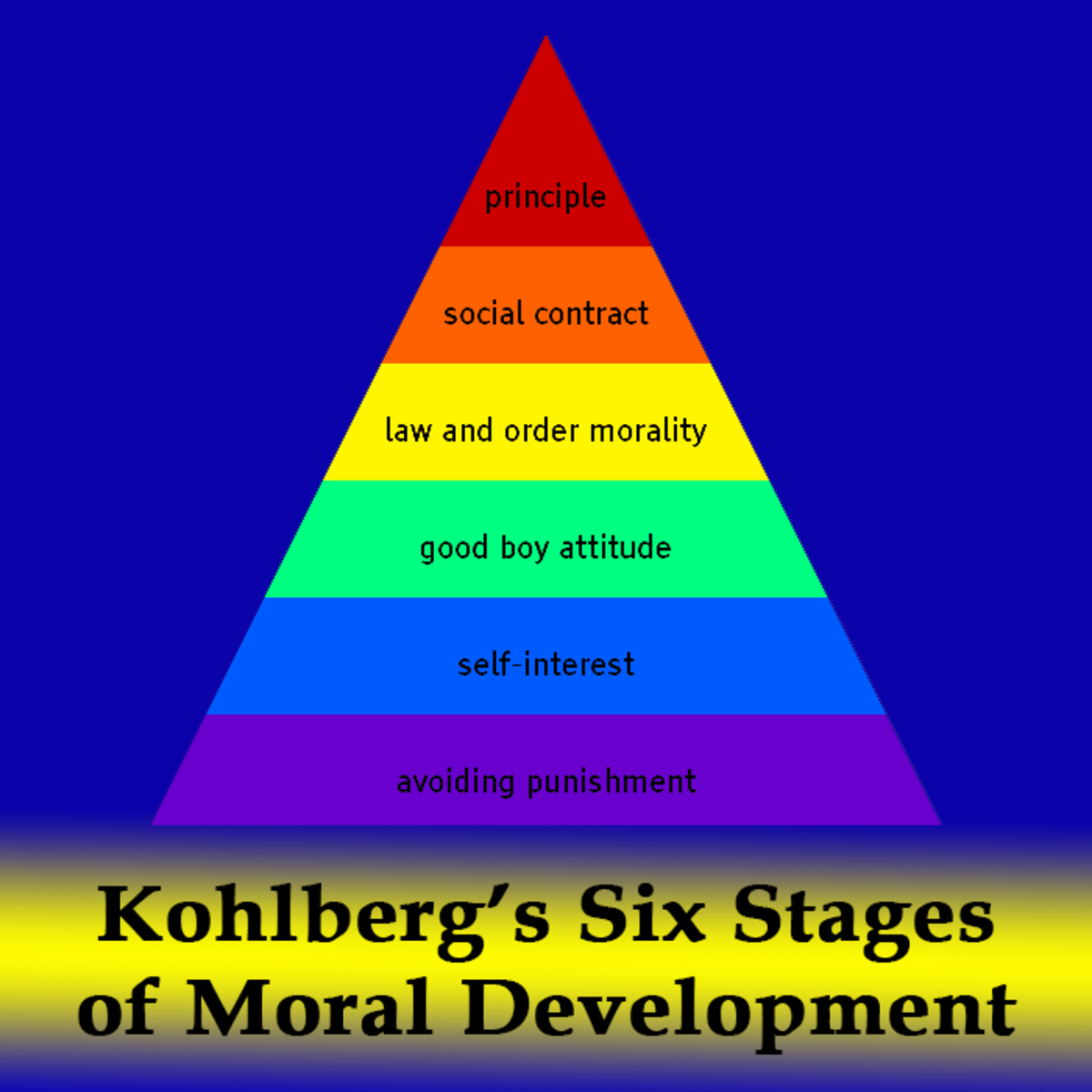How Family Size Determines One's Attitude Towards Money

What Determines A Person's Attitude Towards Money
At the mention of money, there are many responses. Some people view money is an energy to conduct their affairs. Other people consider money to be a means of exchange. Still there are those who see money is the means to a cultivated, civilized lifestyle. There are people who approach money as an avenue to exert power and influence. Then there are a few people who maintain that money is a source of evil, not to be used except for absolute necessities.
A person's attitude towards money is influenced by many things. This attitude towards money could be implanted in him/her by his/her family. A person's neighborhood environment also impart messages regarding money. His/her religion can indoctrinate him/her regarding how h/she should view money. Naturally, a person's original and current socioeconomic status are instrumental as to how h/she should approach and consider money. However, another factor which determines a person's attitude towards money is a person's family size.
FACTORS Which Determine Money Attitudes

The Relationship of A Person's Family Size of Origin to His/Her Attitudes Towards Money
How does family size influence a person's attitude towards money? Family size crucially influences the allotment of money per child. It determines whether children will have to live an impoverished life where it is normative that they have to live at the very minimum level, even doing without. Family size even dictates whether a child will live a subsistent life, not poor but at a barely lower middle class level with just the necessities. Family size can even influence whether a child or children will have the means to pursue activities & things beyond the basic necessities.
Yes, family size is a strong determinant as to how a person will approach money. A person may be extremely frugal because h/she is fearful of slipping through the socioeconomic cracks if h/she is out of money. Or there was very little money around in a person's formative years that his/her approach to money is one of lack and scarcity. Another person is conservative in his/her approach to money because h/she came from a background where there was just enough money for necessities but little luxuries. Then there is a person who had so much discretionary income that h/she views money is a source of abundance, never having to struggle nor cut corners.
Family Size and Money

Money and Family Size
Family size comes in variations. There is the small family of 1-2 children per household. Secondly, there is the medium family consisting of 3-4 children per household. Then there is the medium large family of 5 children per household. This follows with the large family of 6-8 children per household. Lastly, there is the very large family of 8 and more children per household.
These varied family categories influence how a person born into these family types approach money. These family categories furthermore influence a person's outlook regarding money. These family categories even implant what type of consciousness, mentality, mindset, and philosophy a person may have regarding money. Family categories determine the degrees of importance that money has in a person's life. One person's family size may dictate that money really is not that important and that struggle is normative while another person's family size causes him/her to believe that money is necessary to live a certain type of lifestyle.
Correlation of Family Size and Money Outlook

The Environment of Family Size and The Relationship to Money
People from small families oftentimes grew up in environment where there was discretionary money beyond the necessities. Children in small families oftentimes have discretionary income for cultural and intellectual activities. They also have monies to indulge themselves whenever they wish to. Typically, children in small families grew up in socioeconomic affluent environments where parents are highly educated and have lucrative jobs. Since there is a small number of children per household, there is more money per child. Children in small families do not have to do without. They have more than enough money to go around.
Medium sized families although larger are similar to small families. Typically, this family size is larger but not so large that children are negatively impacted socioeconomically. There is still enough money to be allotted per child. Children do not, on average, have to do without. Many medium sized families are what could be categorized as affluent or at least comfortably middle class.
People who grew up in medium large families felt that there were times that there was not enough money to go around. It was somewhat difficult for money to be allotted per child. In medium large families, there is money but mostly for necessities. Children in medium large families learn early to budget and to forget about things beyond the necessities. There is very little or even no discretionary income in medium large families. If children want something beyond the necessities, they often must work for it. Although there are a few affluent or even middle class medium large families, the average medium large family is middle to lower class.
People who grew up in large families lived at the extreme socioeconomic minimal level. Struggle, want, and doing without are constants in the lives of children in large families. They contend that if they have the basic minimum, they are doing quite well. In their purview, there is absolutely nothing wrong with going without. To them, going without socioeconomically is a badge of honor and symbolizes strength of character. There is never enough money as money has to be allotted a long way among a large number of children. Parents of large families are,on average, less educated than their counterparts in small and medium families. Typically, large families are poor to impoverished socioeconomically.
People born into very large families are the worst off moneywise. Children in very large families do not have enough money, even for the basic rudimentary necessities. Many times, they do not even have money for the basic necessities. It is not unusual for children in very large families to depend upon outside assistance to keep them socioeconomically afloat. It is normative for them to depend upon outside assistance for things such as food, clothing, and medical care. Parents of very large families are typically have a lower level of education like parents of large families do. On average, they are most impoverished of all family categories.
Family Size Environment and Attitude Towards Money

Family Size and the Psychology of Money
One's family size is highly instrumental as to how one approach money. For example, people born into large families have a money consciousness and mindset of scarcity because they grew up in an environment where money was either scarce or nonexistent. They cannot fathom a lifestyle beyond socioeconomic struggle for even the bare necessities. Because of their familial environment, they may even look upon extravagance as moral debauchery and view affluent people as materialistic. They may even view their impoverished lifestyle as normative and never yearn for anything other than impoverishment and struggle.
Another example- people born into small families believe that money is highly important to live a decent, even comfortable lifestyle. They can contend that money is extremely important in order to live a lifestyle beyond struggle and subsistence. They see nothing wrong in having and obtaining the finer things in life. They see living a lifestyle where money is no object to doing as they desire to be normal. They maintain that socioeconomic affluence makes their life psychologically easier and happier. They may also view as dysfunctional, even pathological people who have a poverty and struggle mentality when they do better but refuse to do so. They can furthermore be quite nonplussed at people who glorify, and relish their socioeconomic struggle, scarcity, and doing without.
Now, what happens when a person from a small family enters into a relationship with a person from a large family. Their ideas and attitudes towards money will most likely clash. The person from a small family believes that money is to be enjoyed and believes in living a cultivated life beyond the rudiments while the person from a large family is content with impoverishment and scarcity, seeing all other lifestyles beyond struggle as inherently decadent. The former may want to travel while the latter is content living at a subsistent level.
Each family size whether small, medium, medium large, large, and very large have attitudes towards money which are implanted from their particular family environment. Children born into these varied familial environments have subconscious money messages relayed to them based upon this specific familial environment. When people are in relationships with those with different familial backgrounds, oftentimes there is a clash and/or disagreements when it comes to attitudes and outlooks regarding money.
The Psychology of Money and Family Size

Conclusion
Many factors influence a person's attitude, mindset, and outlook regarding money. These include religion, family background, socioeconomic status, and even neighborhood environment. However, there is yet another factor which influences a person's attitude, mindset, and even outlook regarding money and that is a person's family size h/she was born into.
Family size impacts a person's approach to money for better or worse. A person's family size can make him/her view money as a friend and as a means to accomplish his/her goals, even live at his/her highest level . Conversely, a person's approach to money can cause him/her to be so fearful, even hateful of money that h/she leads a very limited life of always expecting the worse.

Atttitude and Outlook Regarding Money
Describe your attitude towards money?
Your Family Size
What family did you came from?
© 2017 Grace Marguerite Williams








